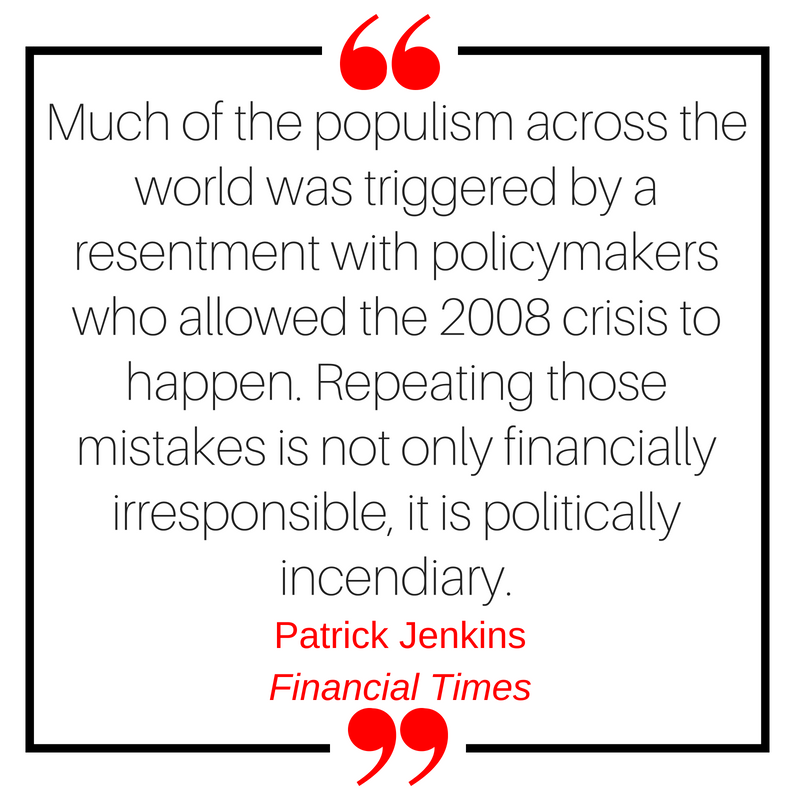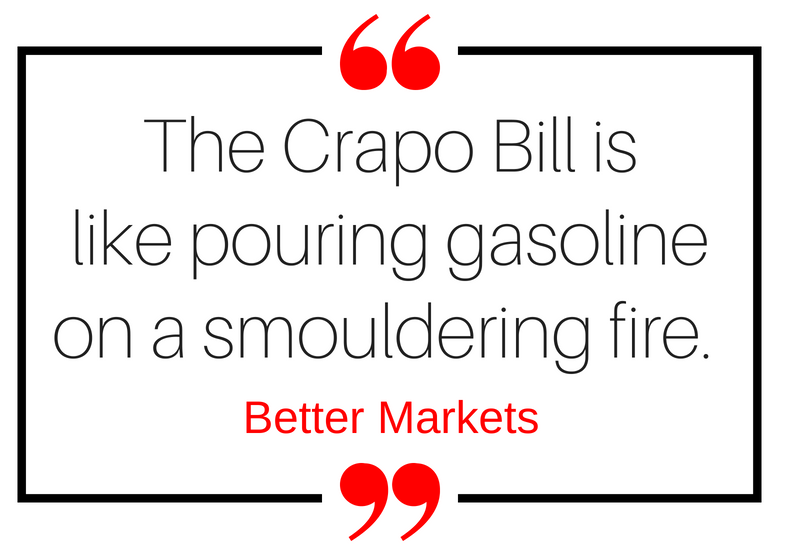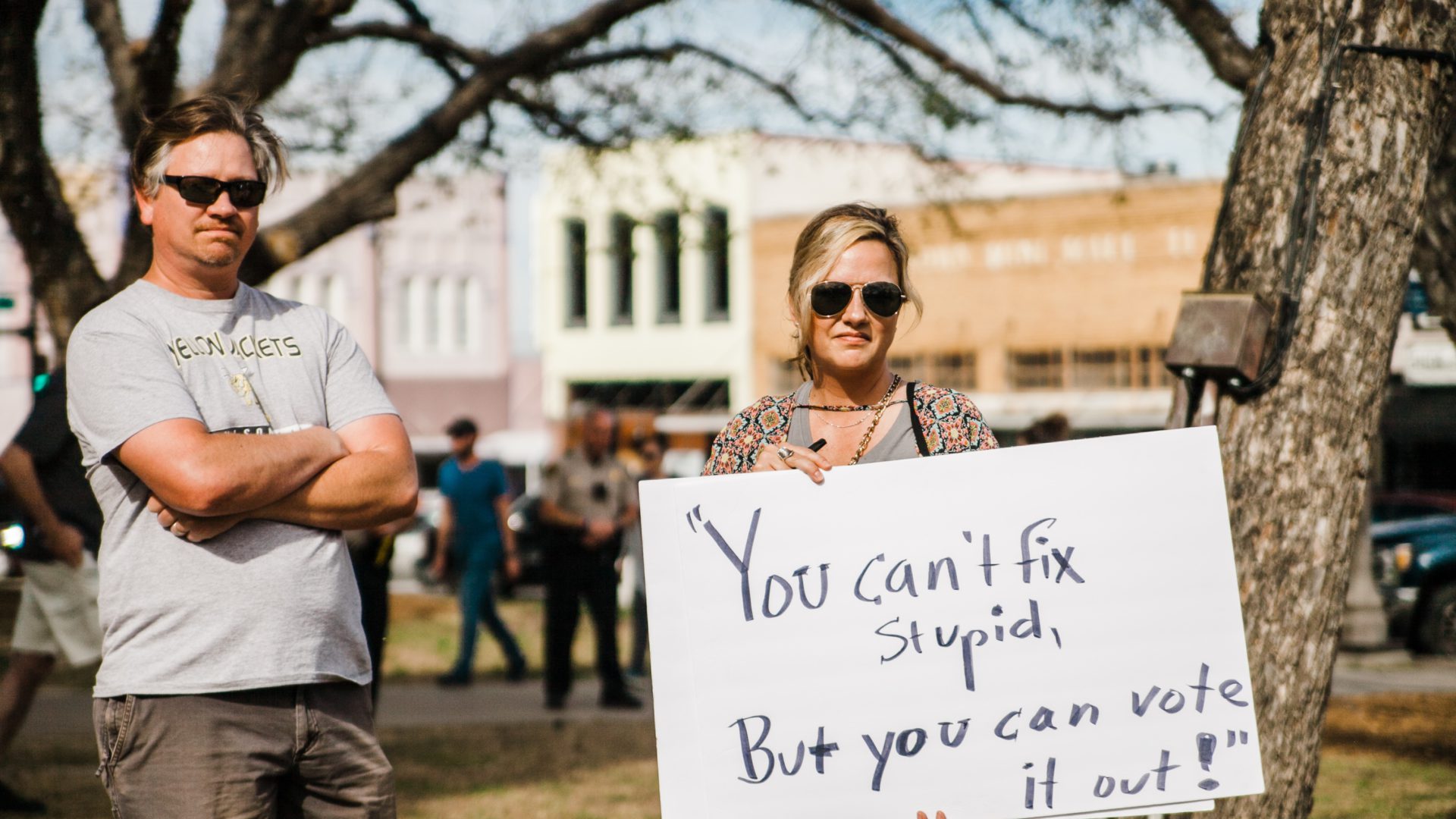
What’s the problem?
Trump | Brexit | Duterte | Maduro | Putin | Le Pen | Orban | Erdogan – political populism is on the march. The failures of financial globalisation revealed by the crisis have given us demagogues and extremists. But they have yet to deliver the financial and economic reforms needed to avoid the next crisis.
What does that mean?
Populists use “us and them” stories to turn complex societal problems into a simple political choice. In the story, “us” means the voters and “them” is usually a group of outsiders or a corrupt elite.
Since the global financial crisis, populists have blamed economic hardship on immigrants, the EU, and government spending. All of these have been targeted for extreme measures, such as muslim bans, Brexit and austerity. None of the measures is relieving economic hardship.
The rules of the economy and the global financial system, by contrast, have largely avoided fundamental challenge.
This practice of scapegoating outsiders for homegrown failures, a tactic of demagogue leaders through history, has two grave impacts: it pushes politics in a disturbing and intolerant direction and it fails to fix the underlying problems.

How else do financial markets affect populism?
Financial crises lead directly to an increase in political extremism. A study of political reactions over 140 years found that extreme right-wing parties on average increased their vote share by 30% after a financial crisis, particularly by appealing to voters with nationalistic or xenophobic tendencies.
The Italian banking crisis in the early 1920s tripled Mussolini’s share of the vote to 65%. The financial crisis in Germany in the early 1930s helped the Nazis to become the largest party in Germany. And the 2007-08 global financial doubled the vote share of far-right and right-wing populist parties in France, the UK, Sweden, Finland, the Netherlands, Portugal and Japan.
The study leaves readers wondering what political horrors the next financial crisis might bring, and whether policymakers think about this when they discuss financial regulations.
But financial crises are not the only way that finance can feed populism.
- Inequality: Wealth and income inequalities have exploded since the financial system was deregulated in the 1980s. Some financiers have become billionaires, while normal people have seen little benefit. In the US, median average household incomes are the same as they were 20 years ago and people are angry that trickle-down economics turns out to be a myth. That’s probably why Donald Trump gained maximum support from states with higher income inequality. But ever since he’s been in power, the inequality gap only seems to have widened.
- Austerity: The financial crisis provided an excuse for free market advocates in government to privatise or cut public services, often with the help of financial firms, adding to the hardships that fuel populism. The IMF now admits that austerity does not work but the damage has been done; in the UK, this approach is said to have contributed to Brexit.
- Tax avoidance: The financial industry is a key enabler of tax avoidance and tax havens, which prompt governments to reduce corporation taxes. The resulting tax shortfalls have led to higher consumption taxes and more public spending cuts – the result of what some politicians have called tax competitiveness.
- Self-interest: The financial industry lobbies hard for subsidies and deregulation, for example shooting down EU proposals to split big banks, or watering down rules to reduce harmful speculation. In the US, the sector spent a record $2 billion on lobbying in the 2016 election, hoping for a $218 billion deregulation windfall. It paid off: the Republican Senate Banking Committee Chair, Mike Crapo, sponsored a bill to deregulate banks, which passed in early 2018.
- Impunity: After the financial crisis, a slew of misconduct investigations and commissions into the crisis failed to hold executives to account, further stoking public anger. Most international banks – after being directly or indirectly bailed-out – did not get into legal trouble, neither did any of their executive directors. Many concluded settlements with legal authorities in which they pleaded guilty and paid billions to close the case, giving the feeling that justice is for sale. Iceland might have been the only country in the world to refuse settlements and put some of the bankers responsible for the crisis in jail.

How does this affect me?
Populist leaders are good at highlighting problems that mainstream politicians are reluctant to tackle, such as immigration, Eurozone politics, or the impacts of globalisation. Populist policies, however, are simplistic and focus on the wrong targets.
Leaders who appeal to popular prejudices rather than using rational argument – also known as demagogues – undermine the institutions that give politics accountability, such as the press, judiciary and opposition parties. The loss of trust weakens society’s ability to solve disputes fairly or agree political compromises. Jobs and earnings suffer, minorities can be marginalised, and violence increases.
The anger that people feel at economic hardship and inequalities – before and since the crisis – ought to be a signal for deep financial and economic reforms that move beyond today’s economic failures. To avoid the dangers of populism, these reforms will need to focus on systemic change and not on bankers or other groups of people.
But if this anger is channelled towards minorities and foreigners the underlying problems will not be solved: Brexit will not make the UK more equal, banning Muslims will not make American healthcare cheaper.
If political populism is the problem, financial and economic reform are part of the solution.
What’s the way forward?
- MAKE FINANCE A SERVANT, NOT A MASTER. Society must actively shape the financial system to serve its needs. The size, scope and structure of the financial sector cannot be left to market forces or oligarchic elites on their own. The financial system should create and allocate credit and capital in line with society’s needs.
- SAFE FOR SOCIETY. The financial sector should be less interconnected and its firms able to absorb their own losses. No private firm should be too-big-too-fail.
- LESS LOBBYING. The financial industry’s influence must be limited by preventing excessive lobbying and revolving doors. Civil society should have more influence and representation in financial policy making.
Do you want to join a historic wave of change?
Sources
The Two Sides of Populism, Institute for Policy Studies, 2016.
Trump, Brexit, and the Rise of Populism: Economic Have-Nots and Cultural Backlash, Harvard Business School, 2016.
Politics in the Slump: Polarization and Extremism after Financial Crises, 1870-2014, Funke M., Schularick M., Trebesch C., 2015
Charlie Campbell, 2011, « Scapegoat: a History of Blaming Other People »
The fire power of the financial lobby, Corporate Europe Observatory, 2014
Representation of the public interest in banking, Finance Watch, 2016
Neoliberalism: Oversold? IMF, 2016
EEAG Report 2017: Economics of Populism, EEAG, 2017













